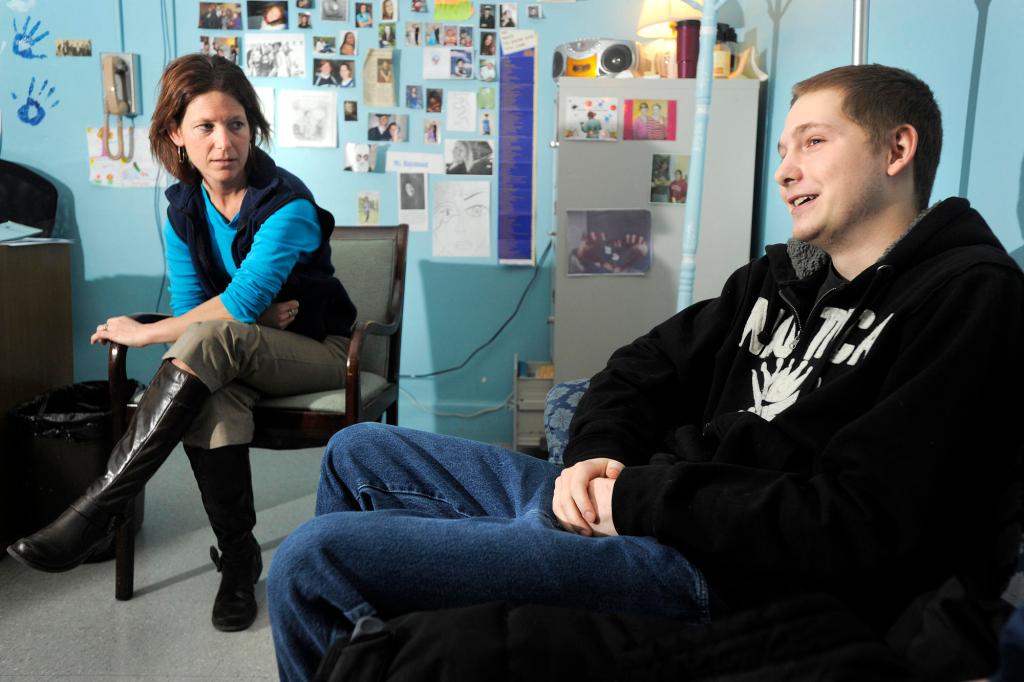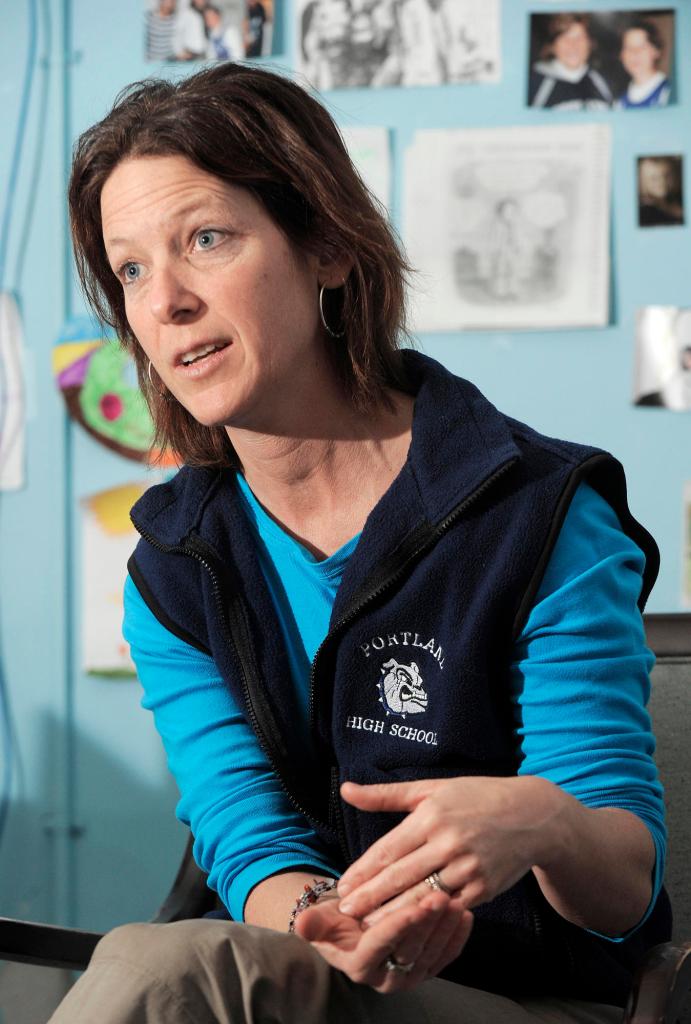PORTLAND — Sophie Payson’s job defies easy description.
Saying that she’s a social worker for Portland High School’s alternative education program doesn’t capture the great lengths to which she will go to help struggling students make it to graduation.
On any given day, Payson finds herself driving students to court appointments, anger-management classes or part-time job interviews. One recent morning, she accompanied a homeless student to a hospital emergency room for treatment of a head injury suffered while staying at a downtown hotel.
Every other day, Payson heads out with a list of students who have missed three or more days of school. She knows where they live and where they hang out.
If she finds them at home, Payson is not above knocking on the bedroom door and rousting them out of the sack — with, of course, permission from a frustrated and often defeated parent or guardian.
“I’m not doing anything magic when I knock on their door,” she said, “other than letting them know that someone at school noticed they were missing.”
Payson would say that she’s just one of many social workers and teachers in Maine schools who are dedicated to helping at-risk students graduate. She’s a member of Portland’s school completion task force, which is working to push the graduation rate in Maine’s largest district above 78 percent.
The group is planning an amnesty event in May, when all dropouts will be invited to return; a teacher workshop on dropout prevention before school starts in September; and a community summit on the topic in the fall.
Students on the receiving end of Payson’s home visits say her efforts are special. For Leo Smith, Payson’s sustained support over the past four years is perhaps the main reason he’s on track to graduate in June.
“If you don’t answer your phone, she’s going to come get you,” Smith said. “She came to my house more than once. It showed that she wanted me in school and that she wasn’t going to give up on me.”
Payson’s workday often extends well beyond school hours, when kids call or text her cell phone for help with a problem, or when parents don’t respond to her calls.
“Some kids, you can never reach their parents,” Payson said. “If I didn’t go to their homes, I wouldn’t ever see or hear from them.”
Payson, who is married and has two children, believes most parents want their kids to succeed, despite challenges that range from low-income jobs to substance abuse.
“Nine times out of 10, parents want their kids to go to school. They just don’t know how to go about it,” Payson said. “I want parents and students to know that I’m their ally. I may not agree with everything that’s going on, but I don’t sit in judgment. Ultimately, my role is to help kids stay in school.”
Many of Payson’s students see her office at the high school as a haven. They visit her between classes, take a seat on the sofa, talk about what’s troubling them. She helps Leo Smith control the hair-trigger anger that regularly wells up in him, a symptom of his father being mostly absent from his life.
“We feel more comfortable here than anywhere else,” Smith said. “I can come in here (angry) at the world, and 20 minutes later I’m happy as a clam. She makes me feel like I’m supposed to be here. Most people here make me feel like a loser.”
Payson shares credit with other social workers and teachers who regularly reach out to struggling students and form ties that increase their chances of success.
“Sometimes a caring teacher or social worker may be the only tether that keeps a student in school,” Payson said. “You have to be creative in this job and figure out what students need to be successful. But honestly, I have the best job in the world.”
Staff Writer Kelley Bouchard can be contacted at 791-6328 or at:
kbouchard@pressherald.com
Send questions/comments to the editors.



